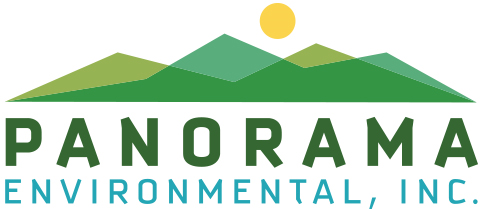With summer upon us, Panorama is finding that counties across California are facing washed out roads and emergency repairs in the aftermath of an exceptionally stormy winter season. As high temperatures now melt the historic Sierra Nevada snow pack, our transportation infrastructure continues to sustain damages from high river flows and flooding. Many counties from the coast to the Sierra Nevada are experiencing road closures and repair activities well above the seasonal norm, and public works departments may not have readily available resources or experience to address environmental compliance for emergency repairs.
If you are currently facing emergency road repairs, here are some helpful ideas to consider as you navigate the environmental compliance process:
- Is your project exempt? A variety of emergency projects, including damages to public works infrastructure, are exempt from the requirements of the California Environmental Quality Act (CEQA) (CEQA Guidelines §15269).
- Can you use expedited procedures? Permitting agencies such as the California Department of Fish and Wildlife and Regional Water Quality Control Boards have special expedited procedures in place for the notification and permitting of emergency projects.
- Do you have on-call consultants? Panorama recommends identifying experienced consultants in an on-call capacity before there is an immediate need for consultant support. Maintaining a list of qualified on-call consultants can ensure that bidding and contracting does not lead to delays in addressing emergency repairs when they occur. Contracting environmental compliance work as a component of an engineering project is another way to streamline the process for contracting, project management, and project definition.
- Simple, low cost actions. Counties that do not have consultants under contract can still take action to avoid funding and schedule delays by implementing the following low-cost steps:
1. Document the damage as soon as it is apparent and safe to do so.
2. Notify permitting agencies of emergency damage as soon as possible.
3. Document resources in the project location (e.g., take lots of photographs).
Several funding options are available to counties to assist with the cost of emergency road repairs, including:
- Federal Highway Administration (FHWA) Emergency Relief Program. FHWA funds are available through Caltrans Local Assistance offices and can be used to address impacts to Federal-aid highways.
- State of California Governor’s Office of Emergency Services (Cal OES). Cal OES offers services to address impacts to roads on and off the Federal-aid highway system.
We are also here to help. Panorama has over 20 years of experience assisting counties with the definition and repair of storm-damaged infrastructure. We have helped counties restore storm-damaged roads using funding from FHWA and Cal OES, provided on-call CEQA and NEPA documentation and permitting support, managed the completion of biological and cultural field surveys, prepared Caltrans-required NEPA-support documents, notified and coordinated with permitting agencies, and more. We have also helped local jurisdictions develop routine maintenance programmatic permits, which results in a streamlined approach to permitting that is pre-approved by the permitting agencies.
Panorama also can provide training for county staff on any aspect of the environmental planning and permitting process to better prepare them to manage these projects when they arise.
California’s roads are facing many challenges this year, but we believe the environmental planning process does not have to be one of them. The strategies outlined above can simplify and streamline the entire process, allowing our counties to more effectively maintain the transportation infrastructure we all depend on.
For more information about how Panorama can help counties tackle the permitting challenges of storm-damaged infrastructure, or to request a training on a specific environmental topic, contact Rita Wilke at rita.wilke[at]panoramaenv.com or (650) 290-7214.
[box]
Storm-Damaged Infrastructure Project Examples:
- Upper Trona Wildrose Road Repair Project
- Lower Trona Wildrose Road Emergency Opening and Permanent Restoration Project
- Inyo County Roads Emergency Opening Project
[/box]


